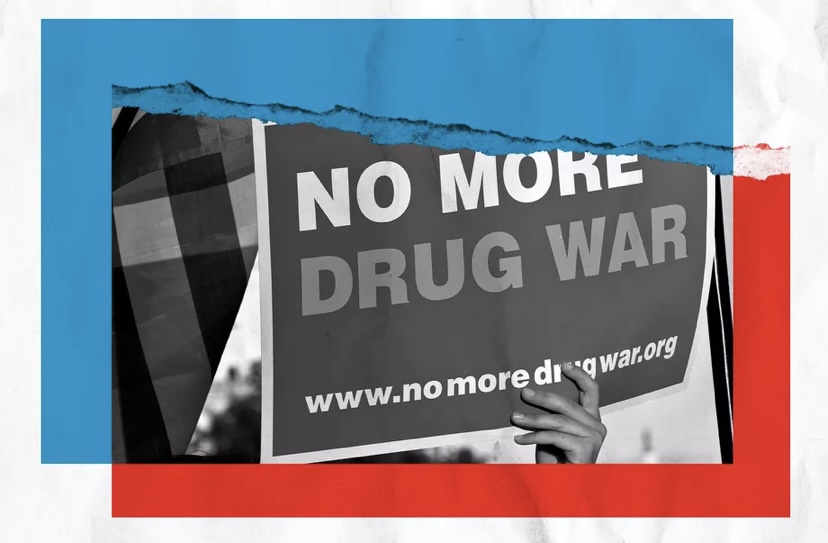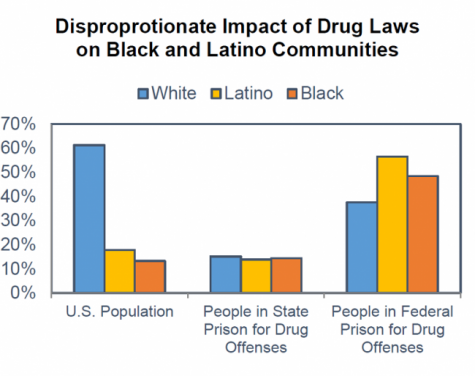
Mia Costales | News Editor
December 9, 2020
The state of Oregon has recently passed Measure 110, which decriminalizes the possession of illegal drugs including cocaine, heroin, oxycodone, and methamphetamine. This measure will make it easier for addicts to get the help they need by classifying drug possession as a civil violation rather than a crime. People caught with illegal drugs will then have to pay a maximum fine of $100 and may be sent to a drug addiction treatment and recovery program funded by Oregon’s marijuana tax revenue and prison savings. Measure 110 is a monumental step towards ending the “War on Drugs” and decreasing incarceration rates for communities of color.
In June of 1971, President Nixon formally declared a “War on Drugs,” increasing the size and presence of federal drug control agencies. This meant mandatory sentencing for drug possession and the allowance of “no-knock” warrants. And because law enforcement focuses heavily on urban, often lower-income areas, communities of color were and still are targeted for drug use at a greater rate than others.
While drug possession is still a criminal offense, incarceration will only perpetuate the cycle of drug abuse. However, with Measure 110, Oregon is pushing to remove people who are addicted to drugs from the criminal justice system and instead provide them with the needed treatment. This is a huge step towards bringing justice to people of color who are disproportionately incarcerated for drug offenses.

“I think it’s really great that there’s a state that’s finally taking a step toward finding the correct solutions to drug problems,” sophomore Kayla McLaughlin said. “In other words, Oregon has created a system where someone can get the help they need instead of being thrown in jail without being able to recover correctly. This is basically the reverse of what the war on drugs did to minority groups.”
According to the U.S. Census Bureau, nearly 80% of people in federal prison and almost 60% of people in state prison for drug offenses are black or Latino. However, studies from the Census Bureau have also shown that minorities use drugs at similar rates as white people. But from the looks of it, Measure 110 will greatly benefit incarcerated minorities and decrease some of the stigma surrounding drug addiction.
“Canada made plans to decriminalize drugs a long time ago and it makes it safer for people to use drugs without dying,” senior Jadyn Blake said. “I think it’s a good idea that will ultimately save lives.”
The decriminalization of illegal drugs is a small step towards countering the war on drugs, but if the U.S. continues to provide services for those struggling with addiction, we will be that much closer to solving the addiction crisis throughout the country.

Leave a Reply